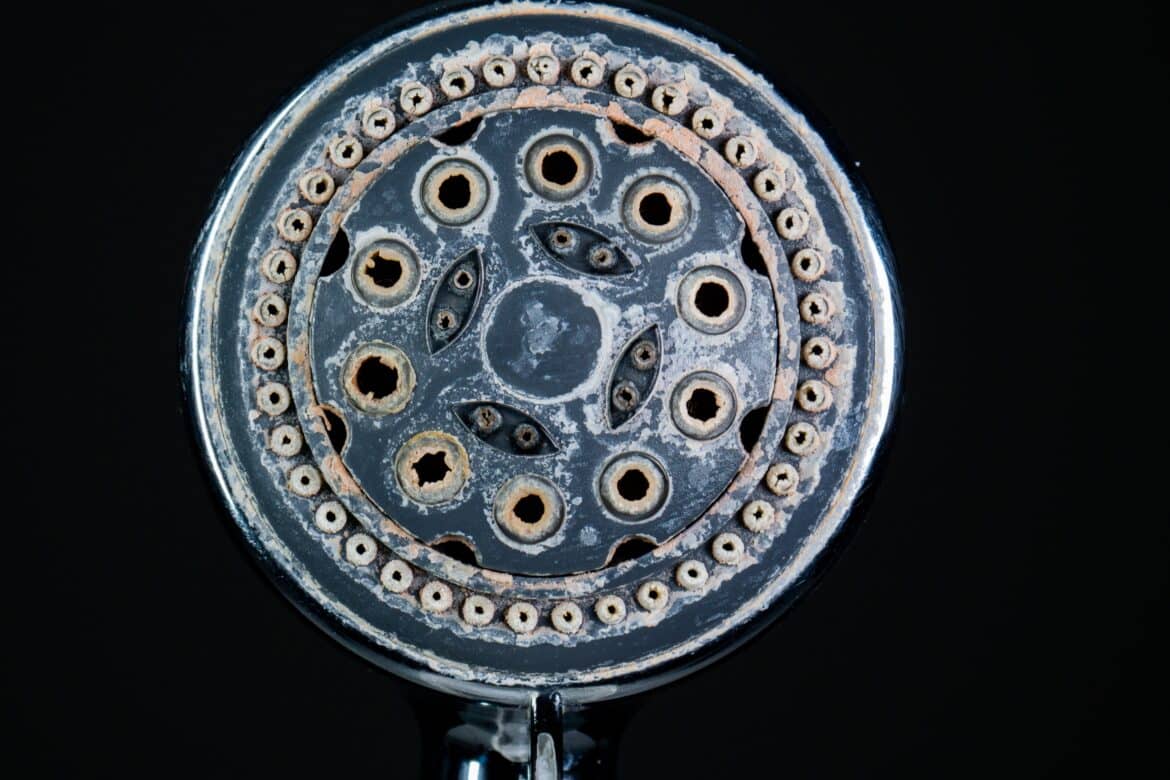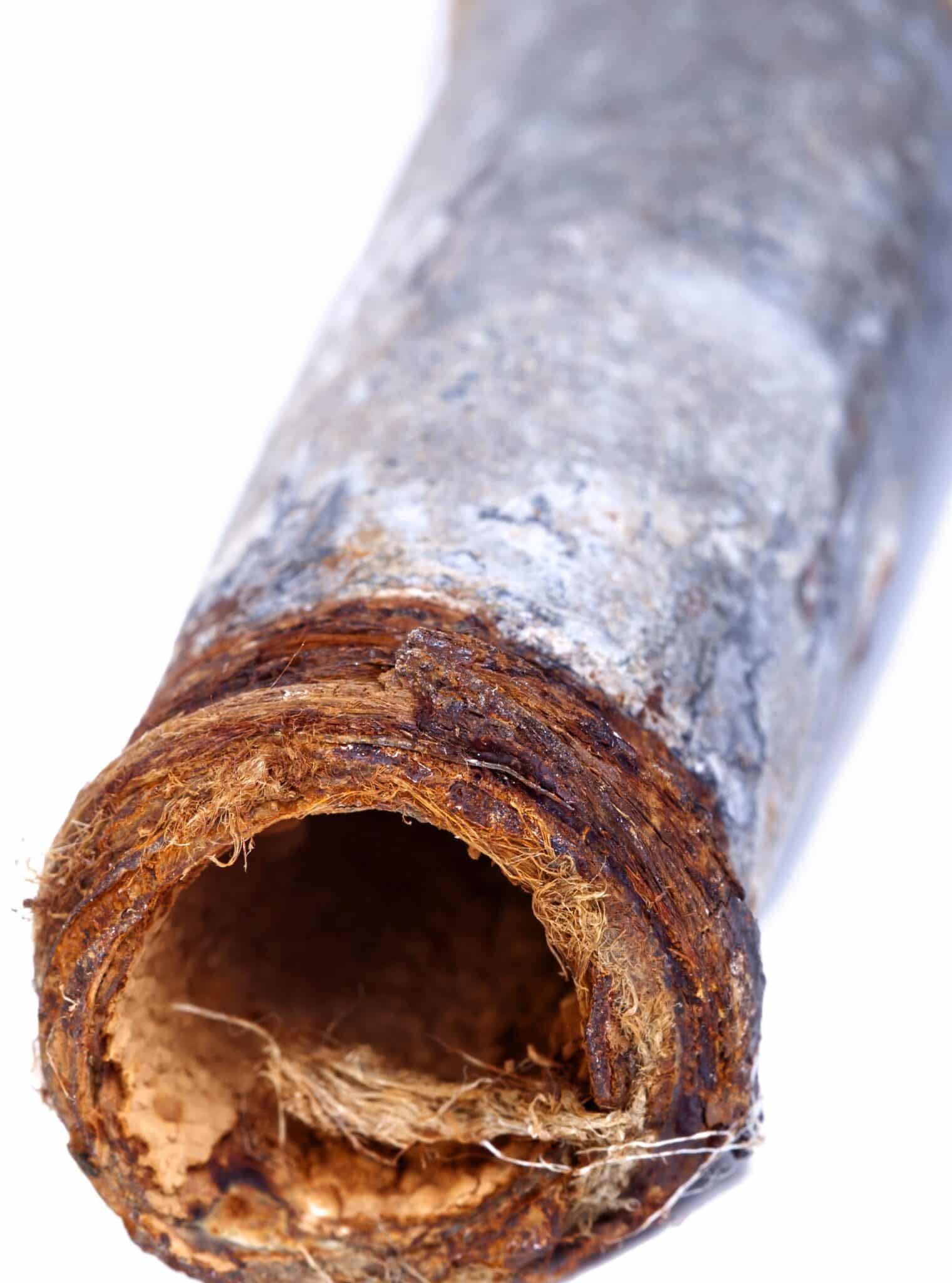
Reducing Mineral Buildup in North Dallas Pipes
Mineral buildup, a frequent issue in North Dallas, results from hard water containing high levels of calcium and magnesium. These minerals gradually accumulate inside pipes, restricting water flow and increasing strain on plumbing systems. If ignored, mineral buildup can reduce appliance efficiency and lead to costly repairs. Proactively managing this buildup helps North Dallas homeowners maintain optimal plumbing performance and avoid expensive maintenance issues.
The Science Behind Mineral Buildup in North Dallas
Mineral buildup is a persistent and costly problem for North Dallas homeowners, resulting from hard water packed with calcium and magnesium. As water flows through pipes and heats in appliances, these minerals cling to surfaces, creating a stubborn residue that gradually narrows pipes, restricts water flow, and increases pressure on plumbing systems. This buildup not only affects water flow but also forces appliances like water heaters and dishwashers to work harder, driving up energy costs and reducing their lifespan.
In North Dallas, where naturally mineral-rich water accelerates buildup, hot water systems are especially vulnerable. Heat speeds up mineral accumulation, causing layers to harden and form blockages, which can lead to costly repairs and even premature replacement of appliances. The science behind it is simple yet impactful—left unchecked, mineral buildup can lead to inefficiencies and damage that add up over time.
Addressing mineral buildup early offers North Dallas homeowners a proactive way to protect their plumbing, maintain efficient water flow, and preserve the longevity of essential appliances. By implementing regular maintenance, like descaling and professional inspections, homeowners can safeguard their systems, save on energy costs, and avoid expensive plumbing emergencies down the road.
Seasonal Impact: Why Address Mineral Buildup in November
November is the prime time for homeowners to address mineral buildup in their plumbing systems. As temperatures drop, plumbing becomes more vulnerable to the effects of mineral deposits from hard water, rich in calcium and magnesium. When pipes and water heaters contain mineral buildup, colder weather can amplify issues like restricted water flow, increased pressure, and potential pipe damage. Tackling this buildup in November helps ensure pipes and appliances are prepared for the winter, avoiding inconvenient and costly repairs.
During the holiday season, the demand for hot water often rises, with water heaters working overtime to meet household needs. Systems burdened by mineral buildup struggle to keep up, resulting in higher energy costs and reduced efficiency. Taking action now ensures that water heaters and plumbing systems can handle the increased demand, keeping energy bills down and avoiding breakdowns.
Additionally, as mineral deposits harden in colder temperatures, blockages and even pipe fractures become more likely. November’s mild weather is ideal for professional maintenance, allowing technicians to inspect and treat pipes without winter complications. Proactive care at this time helps homeowners prevent expensive repairs, maximize appliance efficiency, and enjoy stress-free holidays with well-maintained plumbing systems.
Identifying Signs of Mineral Buildup in Your Frisco Home
A common but often hidden issue in Frisco homes, hard water deposits can gradually impact plumbing systems, appliances, and even utility bills. In regions with hard water, recognizing the early signs of mineral buildup is essential for avoiding costly repairs and maintaining efficient plumbing. This buildup, primarily caused by calcium and magnesium in the water, accumulates over time, restricting water flow and affecting everyday appliances. Learning to spot these indicators can help you address the problem before it worsens.
-
Reduced Water Pressure Throughout the Home
If you’ve noticed weaker water flow in your showers or faucets, mineral deposits may be the cause. As these minerals settle along the inner walls of pipes, they create blockages that narrow the passage, restricting water flow. Tasks like filling a glass or taking a shower become slower, indicating that deposits may already be affecting your plumbing system.
-
Persistent White Residue on Faucets and Showerheads
Chalky, white deposits on fixtures are more than just an aesthetic issue; they signal that minerals are accumulating in your water. This residue forms not only on the exterior of faucets and showerheads but also inside the pipes. Over time, these deposits harden, forming blockages that worsen with neglect. Regularly scrubbing away this residue is a sign that mineral buildup is occurring deeper within your plumbing.
-
Appliances Operating Less Efficiently
Water-dependent appliances, such as dishwashers, washing machines, and water heaters, are particularly vulnerable to mineral buildup. You might notice spots left on dishes, laundry that isn’t as clean, or odd sounds like rumbling from the water heater—indicators that minerals are interfering with appliance efficiency. These effects can also lead to increased energy usage, as appliances must work harder to function normally.
-
Unexpected Increase in Energy Bills
Higher-than-usual energy bills can be a hidden indicator of mineral deposits in your water systems. As mineral buildup restricts water flow within appliances, they require more energy to perform basic functions. Over time, this added workload raises your energy costs, a hidden expense that can escalate if buildup is left unaddressed.
Spotting these signs early can help Frisco homeowners protect their plumbing systems and appliances from the costly effects of mineral deposits. Regular maintenance, such as professional descaling, effectively manages buildup, ensuring efficient water flow and appliance performance. Taking proactive steps when you notice these indicators can save money, extend the life of your plumbing, and keep your home running smoothly.
How Mineral Buildup Affects Plumbing Efficiency
Hard water deposits, common in many homes, can have a significant impact on plumbing efficiency over time. When minerals like calcium and magnesium accumulate inside pipes, they form deposits that restrict water flow, increase pressure, and place strain on the entire plumbing system. Here’s how these deposits affect plumbing efficiency:
Restricted Water Flow and Increased Pressure
- Deposits reduce the interior diameter of pipes, limiting water flow and increasing pressure.
- This added pressure forces plumbing systems to work harder, raising the risk of leaks, weakened joints, and potential pipe damage.
Diminished Fixture and Appliance Performance
- Fixtures like faucets and showerheads may clog or spray unevenly, while appliances like dishwashers, washing machines, and water heaters struggle with restricted water flow.
- Reduced efficiency in these fixtures and appliances often leads to incomplete cycles, resulting in more wear and tear and a need for more frequent repairs or replacements.
Increased Energy Use for Water Heaters
- Water heaters are particularly vulnerable; as minerals settle on heating elements, they create an insulating barrier that reduces heating efficiency.
- To maintain the desired water temperature, the heater consumes more energy, driving up utility bills and increasing the likelihood of overheating or premature breakdown.
Rising Utility Bills and Hidden Costs
- The strain on appliances and plumbing due to restricted water flow leads to higher energy usage, which shows up in monthly utility bills.
- Over time, the costs add up, making these deposits an ongoing financial concern as well as a functional one.
Regular maintenance practices like descaling, water softeners, and routine inspections can help reduce deposits and maintain plumbing efficiency. Addressing the issue early can help homeowners avoid costly repairs, extend the life of appliances, and ensure a more reliable water system.

Long-Term Damage: The Cost of Ignoring Mineral Buildup
Ignoring mineral buildup in the plumbing can lead to extensive long-term damage, resulting in costly repairs and disruptions. Minerals like calcium and magnesium, common in hard water, gradually accumulate within pipes and appliances, causing significant harm to your plumbing system over time. Here are the main ways that untreated mineral buildup can damage your home’s infrastructure and finances:
Pipe Damage and Corrosion
- Mineral deposits narrow the interior of pipes, restricting water flow and creating high-pressure zones that stress plumbing. This pressure increases the risk of leaks, fractures, and even burst pipes, which can require expensive repairs.
- Deposits can also accelerate corrosion, especially in metal pipes, as minerals react with the metal. Corroded pipes often need full replacement, which is not only costly but disruptive, as it may require opening walls or floors.
Reduced Appliance Lifespan
- Water heaters, dishwashers, and washing machines are heavily impacted by mineral buildup, as deposits coat heating elements and other components. This forces appliances to work harder, increasing energy use and causing frequent overheating or breakdowns.
- Ignoring buildup often leads to premature appliance failure, resulting in unexpected replacement costs. Regular descaling and preventive maintenance can extend appliance lifespan, avoiding these unnecessary expenses.
Increased Energy Bills
- Mineral buildup decreases efficiency in both pipes and appliances, leading to higher energy consumption. Appliances like water heaters use more energy to reach and maintain desired temperatures when buildup is present, as deposits insulate heating elements and hinder performance.
- The cumulative effect of higher energy use can lead to steadily rising utility bills. Over time, these added costs become substantial, creating an ongoing financial drain that could have been prevented.
Frequent Clogs and Plumbing Blockages
- Over time, untreated mineral deposits harden and form thick blockages inside pipes, increasing the risk of severe clogs. These blockages can cause slow drains, backups, and costly plumbing visits.
- Frequent calls to address clogs or backups add up quickly and can create an inconvenient cycle of repairs that disrupts household routines.
Addressing mineral buildup early with regular maintenance, descaling, and water treatment solutions is a smart investment that saves time, money, and frustration. Proactive care prevents these costly issues, preserves efficient water flow, and extends the life of both plumbing and appliances. In the end, the cost of ignoring mineral buildup far outweighs the benefits of preventive maintenance, making it an essential part of home upkeep.
Effective Ways to Reduce Mineral Buildup in Frisco, TX
For homeowners in Frisco, managing mineral buildup is essential for efficient plumbing. Here are five effective strategies:
Install a Water Softener
A water softener reduces calcium and magnesium, preventing buildup in pipes and appliances, and extending plumbing life.
Use White Vinegar for Descaling
Regularly applying vinegar to faucets and showerheads dissolves deposits. Soak fixtures directly to tackle stubborn buildup and maintain flow.
Flush the Water Heater Twice a Year
Regularly flushing sediment from the water heater prevents efficiency loss and extends the appliance lifespan.
Add a Showerhead Filter
Showerhead filters capture minerals before they reach plumbing, reducing buildup and preserving water pressure.
Schedule Professional Descaling
Professional descaling services clear mineral buildup deep in pipes, ensuring efficient water flow and preventing future repairs.
Implementing these solutions protects plumbing, improves water flow, and helps avoid costly repairs.

Benefits of Professional Mineral Buildup Prevention Services
Professional mineral buildup prevention services offer essential advantages that enhance plumbing efficiency, protect water quality, and optimize home performance. In areas like Frisco, TX, where hard water is a common issue, these services address the root causes of buildup in pipes, fixtures, and appliances.
-
Enhanced Plumbing Performance
Mineral deposits reduce water flow and create pressure buildup, which strains pipes and fixtures. Professional services use advanced techniques to clear these deposits from deep within your plumbing system, restoring optimal water flow and maintaining steady pressure. By preventing buildup, these services extend the life of pipes and fixtures, saving homeowners on frequent repairs and replacements.
-
Improved Appliance Efficiency
Mineral buildup often clogs water heaters, dishwashers, and washing machines, reducing performance and driving up energy costs. Professional services target these deposits, allowing appliances to operate smoothly and consume less energy. This boost in efficiency leads to lower utility bills, fewer breakdowns, and a longer lifespan for your appliances.
-
Cost Savings on Maintenance and Repairs
By addressing mineral buildup early, professional services help avoid costly, emergency plumbing repairs. Preventive maintenance reduces the likelihood of sudden breakdowns and expensive fixes, helping homeowners maintain a reliable plumbing system without the stress of frequent issues.
-
Increased Home Efficiency and Comfort
A plumbing system without mineral deposits operates more efficiently, providing consistent water flow and pressure. This improvement enhances daily convenience and comfort, making home routines smoother and more enjoyable.
-
Peace of Mind with Preventive Care
Professional mineral buildup prevention offers peace of mind by keeping your plumbing and appliances in top condition. With regular maintenance, homeowners avoid the unexpected disruptions and expenses associated with untreated hard water buildup, ensuring a worry-free, efficient home environment.
Choosing bluefrog Plumbing + Drain of North Dallas for Your Plumbing Needs
Selecting the right plumbing service is essential for maintaining a reliable and efficient plumbing system, and bluefrog Plumbing + Drain of North Dallas stands out as a trusted choice for homeowners in Frisco, TX, and surrounding areas.
With a strong commitment to customer satisfaction and a team of skilled professionals, bluefrog Plumbing + Drain of North Dallas brings expertise and personalized service to every job, making them an ideal partner for any plumbing need.
One of the key advantages of choosing bluefrog Plumbing + Drain is their specialized experience in tackling issues unique to North Dallas, such as mineral buildup from hard water. Their team understands the local water conditions and offers tailored solutions, including professional descaling, water treatment options, and preventive maintenance, to keep your plumbing system running smoothly and efficiently.
In addition to expertise in handling mineral buildup, bluefrog Plumbing + Drain of North Dallas is known for prompt, dependable service. They prioritize responsiveness, ensuring that each call is met with urgency and care. From routine inspections to emergency repairs, their licensed professionals are equipped to handle a wide range of plumbing issues, using advanced tools and techniques to deliver effective and lasting results.
When you choose bluefrog Plumbing + Drain of North Dallas, you’re investing in long-term plumbing health. Their dedication to quality work, clear communication, and respectful service sets them apart as a reliable choice, giving homeowners the confidence that their plumbing system is in the best hands.
FAQs About Mineral Buildup in North Dallas Pipes
-
What causes mineral buildup in North Dallas water pipes?
Mineral buildup primarily results from “hard water,” which contains high levels of calcium and magnesium. These minerals slowly deposit inside pipes, causing constriction and reduced water flow over time. Frisco, TX, and surrounding North Dallas areas often experience hard water due to natural mineral content in the groundwater.
-
How can I tell if mineral buildup is affecting my plumbing?
Signs of mineral buildup include reduced water pressure, white or chalky deposits around faucets and showerheads, and water spots on dishes. If left unchecked, mineral buildup can lead to clogged pipes, water heater inefficiency, and other costly plumbing issues.
-
Can I reduce mineral buildup on my own, or do I need professional help?
Small-scale descaling using vinegar or other mild acids can help remove buildup on fixtures. However, professional assistance is recommended for thorough pipe cleaning and to prevent potential damage. bluefrog Plumbing + Drain of North Dallas offers services specifically designed to address mineral buildup.
-
What are the long-term effects of ignoring mineral buildup?
Untreated mineral buildup can lead to pipe corrosion, leaks, and even burst pipes. It also reduces the lifespan and efficiency of water heaters, dishwashers, and other water-dependent appliances, potentially leading to costly repairs or replacements.
-
How often should I have my pipes checked for mineral buildup?
For North Dallas residents, annual plumbing inspections are a good rule of thumb to catch mineral buildup early. bluefrog Plumbing + Drain of North Dallas provides regular inspection services that can help prevent and manage buildup issues proactively.
Trust bluefrog Plumbing + Drain of North Dallas for expert mineral buildup prevention, ensuring optimal plumbing performance, extended appliance life, and the confidence that your home is protected against costly future repairs.
















